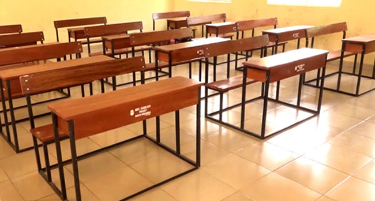On Wednesday, the Senate took a significant step towards bolstering Nigeria’s education system by seeking to increase the penalty for parents who fail to enroll their children in school. The proposed legislative amendment aims to raise the penalty from N2,500 to a substantial N250,000, reflecting a more serious commitment to ensuring that all children have access to education.
This initiative was highlighted as the Senate passed a Bill for an Act to amend the Compulsory, Free Universal Basic Education (UBE) Act through its second reading. The bill, introduced by Senator Idiat Adebule, aims to strengthen the enforcement of existing laws that mandate education for all children. The key provision in the UBE Act empowers Local Education Authorities within the States of the Federation and the Federal Capital Territory to prosecute parents who deny their children the right to basic education. Senator Adebule’s bill seeks to ensure that this provision is not only implemented but also carries a more significant deterrent in the form of increased penalties.
Specifically, the proposed amendment seeks to raise the penalties for defaulting parents from a mere N2,500 to N250,000. This increase is intended to underscore the seriousness of the offense and to act as a stronger deterrent against non-compliance. Additionally, the bill proposes the deletion of section 4(2) of the UBE Act, 2004, which currently exempts parents living abroad from being sanctioned under this law. By removing this exemption, the bill aims to hold all Nigerian parents accountable, regardless of their location.
The bill received unanimous support in the Senate and was subsequently referred to the Committee on Education, Basic and Secondary for further consideration. The committee has been tasked with reporting back to the Senate within two weeks, indicating the urgency and importance of this legislative effort.
The issue of out-of-school children in Nigeria is a pressing concern. According to the United Nations Educational, Scientific and Cultural Organisation (UNESCO), approximately 20 million children in Nigeria are not attending school. This alarming figure has been a point of contention, with government officials often disputing its accuracy. Nonetheless, the high number of out-of-school children highlights the critical need for effective policies and enforcement mechanisms to ensure that every child receives an education.

The proposed amendment to the UBE Act is a response to this crisis. By significantly increasing the penalties for parents who fail to enroll their children in school, the Senate aims to create a more robust framework for educational accountability. This legislative effort reflects a broader commitment to addressing the systemic issues that have long plagued Nigeria’s educational sector.
Education advocates have long argued that without strict enforcement of compulsory education laws, efforts to improve school enrollment and retention rates will remain insufficient. The proposed bill, therefore, represents a crucial step towards not only increasing enrollment but also ensuring that parents understand the importance of education and their role in securing their children’s future.
Moreover, by eliminating the exemption for parents in the diaspora, the bill acknowledges the global nature of education and the responsibilities of Nigerian parents, regardless of where they reside. This move ensures that all parents are held to the same standard and reinforces the message that education is a fundamental right and necessity for all Nigerian children.
As the Senate Committee on Education, Basic and Secondary reviews the bill, stakeholders and the public will be watching closely. The outcome of this legislative process has the potential to significantly impact the educational landscape in Nigeria. Should the bill be enacted, it will mark a substantial shift in how educational mandates are enforced and could lead to improved school attendance rates across the country.
In conclusion, the Senate’s proposed amendment to the UBE Act underscores a strong commitment to education reform in Nigeria. By increasing penalties for non-compliance and ensuring that all parents are held accountable, the bill seeks to address one of the country’s most pressing educational challenges. The next few weeks will be crucial as the committee reviews the bill and prepares its recommendations, paving the way for potentially transformative changes in Nigeria’s education system.




